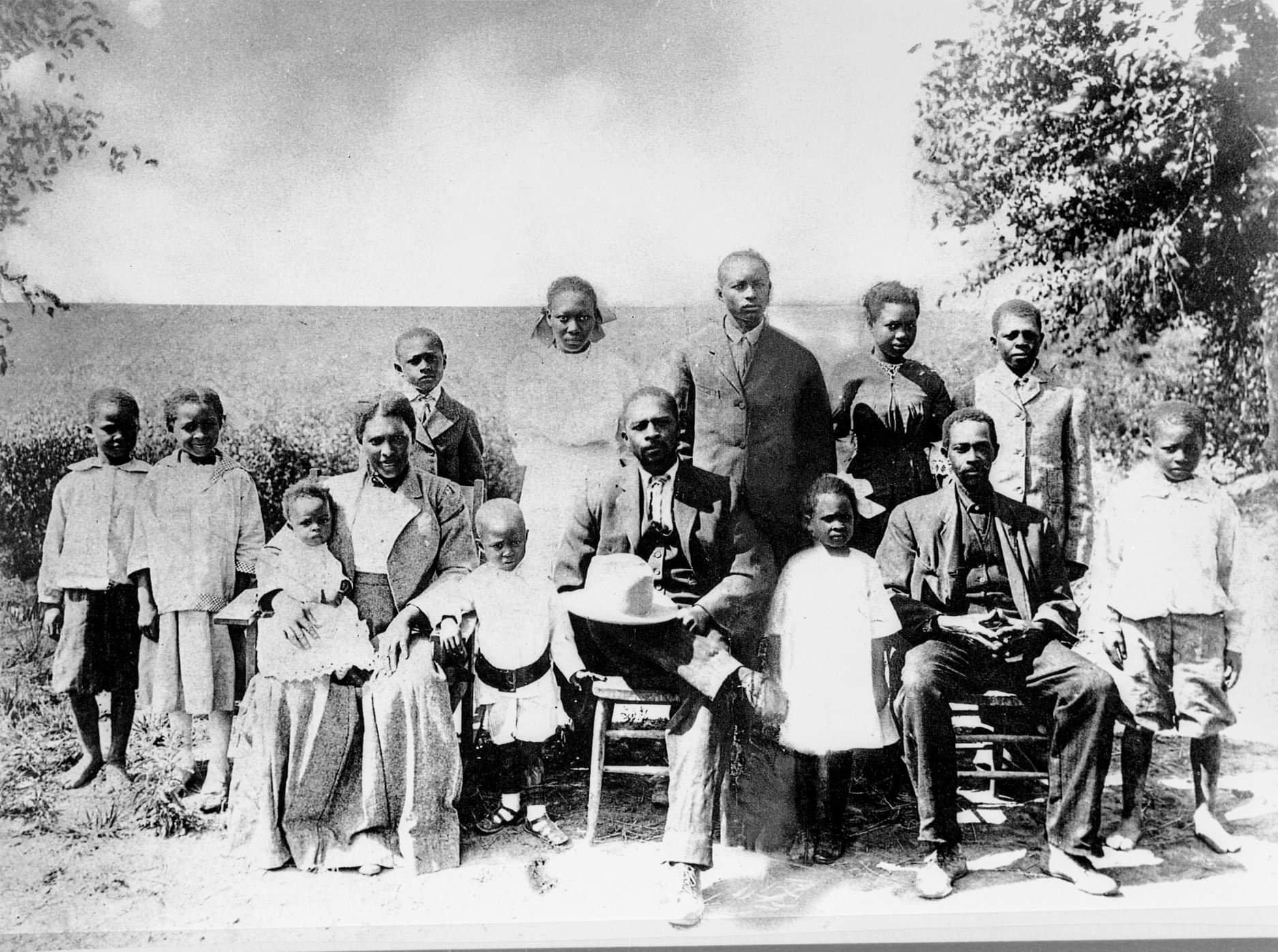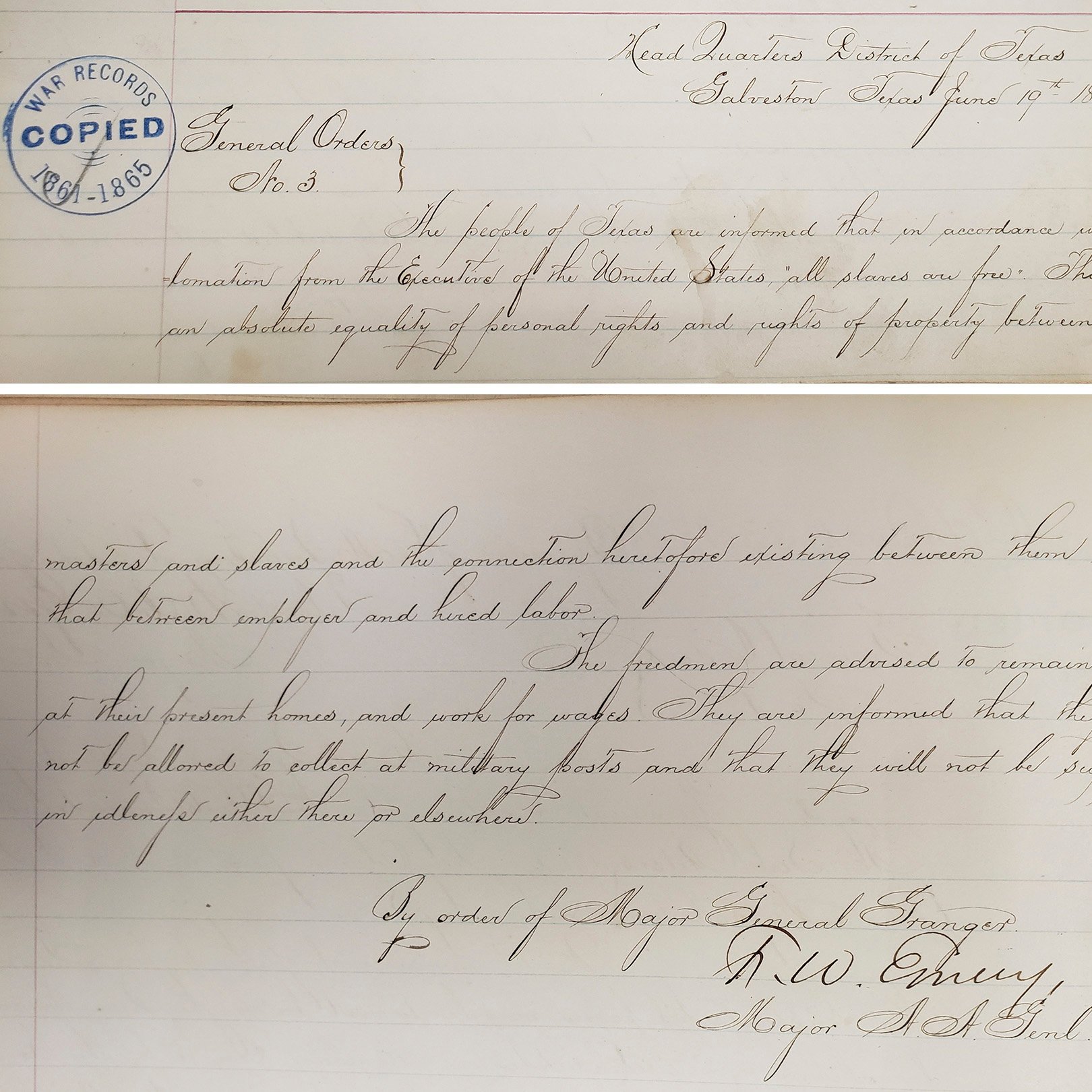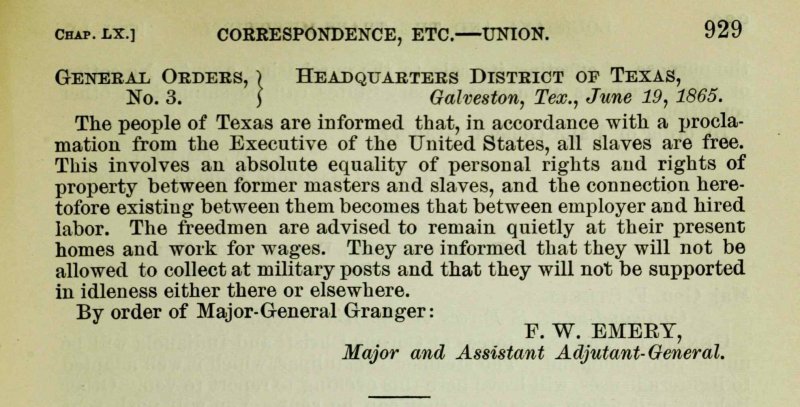
Why Juneteenth
“A bit of a made-up holiday, isn’t it?” asked an acquaintance after Juneteenth was recognized as a national holiday three summers ago. He wasn’t questioning why we would celebrate the ending of slavery in America—he was quibbling with the date itself:
“The first ‘Juneteenth’ came two and a half years after Lincoln signed the Emancipation Proclamation, and six months before the 13th Amendment was ratified. If we’re going to celebrate the end of slavery, why not pick one of those dates?”
By that standard, of course, some of America’s most treasured national observances could be said to be “made-up.”
We mark our independence from Great Britain on July 4th, even though the “Lee Resolution” to split with Britain was approved by the Second Continental Congress on July 2, 1776—prompting John Adams, one of those voting ‘Aye,’ to write next day to his wife:
“The Second Day of July 1776, will be the most memorable Epocha, [sic] in the History of America. I am apt to believe it will be celebrated by succeeding Generations, as the great anniversary Festival.”
But the stirringly worded Declaration of Independence was not adopted until July 4th.
So, we celebrate the 4th.
Then there’s George Washington’s birthday. February 11th, 1731, by the Julian calendar, it became February 22nd, 1732, when the colonies adopted the Gregorian calendar. But we celebrate it on neither of those two days, because Congress picked the third Monday of February, thus guaranteeing, as the National Archives points out, “that the holiday would never be celebrated on Washington’s actual birthday, as the third Monday in February cannot fall any later than February 21.”
One more case in point: Martin Luther King’s birthday. First celebrated as a federal holiday 38 years ago, it has been observed just five times on the 15th of January—the day King was born in 1929.
That’s because “Martin Luther King Day” falls on the third Monday of January.
And King was born on a Tuesday.
Got that?
Let us stipulate, then, that our national holidays possess an element of made-upness about the day we celebrate them.
But by no means does that lessen their significance.
June 19th, 1865—now officially commemorated as Juneteenth—was indeed an “Epocha” in American history, as Adams might have called it. Although Confederate General Robert E. Lee had surrendered the forces under his command to Ulysses S. Grant at Appomattox Courthouse on April 9th, 1865, and Confederate President Jefferson Davis had been captured by Union troops near Irwinville, Georgia on May 10th, the Lone Star state had not yet complied with the Emancipation Proclamation of Abraham Lincoln.
Union General Gordon Granger and his troops traveled to Galveston, Texas to announce General Order No. 3 on June 19th, 1865.
On June 17th, however, Union General Gordon Granger arrived in Galveston, Texas with some 1,800 troops under his command and an order from his boss, General Phillip Sheridan, to “notify the people of Texas” that “all slaves are free.”
Why Lincoln’s Emancipation Proclamation was brought to Texas by a Union soldier and not, say, the United States Attorney General, owes itself to the fact that Lincoln had issued the proclamation as a military measure under his authority as “Commander-in-Chief of the Army and Navy,” rendering it applicable only to slaves in territories “in rebellion against the United States.”
Lawyer that he was, Lincoln understood that a presidential proclamation would almost certainly have been struck down as unconstitutional.
As a military measure, however—and this was the real genius behind Lincoln’s Emancipation Proclamation—it took effect whenever and wherever Union troops recaptured territory in the states “in rebellion.” And that is precisely what began to happen when the armies of Grant, Sherman, Sheridan and others started winning victories from Vicksburg to Atlanta to Appomattox, yielding millions of individual “Juneteenths” as slaves were freed by Union troops marching across the South in 1864 and 1865.
The reminiscences of some of those four million freed slaves, interviewed by the Federal Writer’s Project in the 1930’s, demonstrate the importance of Union soldiers armed with Lincoln’s order to their freedom:
“Marster and missus then went into the house; got two large arm chairs and put them on the porch facing the avenue and sat down side by side and remained there watching. In about an hour there was one of the blackest clouds coming up the avenue from the main road. It was the Yankee soldiers…. They called the slaves, saying ‘You are free.’ Slaves were whooping and laughing and acting like they were crazy. Yankee soldiers were shaking hands with [the freed slaves]…and asking them questions.”
Freedom came that way to Texas—the last Confederate state to be recaptured by Union troops—on June 19, 1865, when Granger issued his General Order #3, which set down Lincoln’s proclamation in no uncertain terms:
The people of Texas are informed that, in accordance with a proclamation from the Executive of the United States, all slaves are free. This involves an absolute equality of personal rights and rights of property between former masters and slaves, and the connection heretofore existing between them becomes that between employer and hired labor.
A large celebration marking the day was held in Houston the following June 19th and would be followed by others throughout the state and across the country down the years.
Texas began celebrating Juneteenth as a state holiday in 1980. And now all Americans can join in. It’s an easy holiday to remember, too.
It’s always June 19th.
And not, say, the third Monday of the preceding Friday of the second Thursday of the following month.
© 2024 J. Lawrence Matthews All Rights Reserved
J. Lawrence Matthews has contributed fiction to the New York Times and NPR’s All Things Considered, and, as Jeff Matthews, is the author of three non-fiction books about Warren Buffett and Berkshire Hathaway. One Must Tell the Bees: Abraham Lincoln and the Final Education of Sherlock Holmes is his first novel, and the first ever to bring Sherlock Holmes together with Abraham Lincoln. It is the result of twin passions for the original Sherlock Holmes stories of Sir Arthur Conan Doyle and American history as told on the battlefields of the Civil War. Matthews is now researching the sequel, which follows Sherlock Holmes a bit further afield—to Florence, Mecca and Tibet. More about One Must Tell the Bees.
Suggested Reading:
Juneteenth Background: https://www.archives.gov/exhibits/featured-documents/emancipation-proclamation/transcript.html
Lincoln’s Emancipation Proclamation: https://www.archives.gov/exhibits/featured-documents/emancipation-proclamation/transcript.html
John Adams’ Letter: https://founders.archives.gov/documents/Adams/04-02-02-0016
Federal Writer's Project Slave Narratives: https://www.archives.gov/exhibits/featured-documents/emancipation-proclamation/transcript.htmlGeorge Washington's Birthday | National ArchivesHow the Martin Luther King Jr. birthday became a holiday - National Constitution Center
Texas Juneteenth Observation: https://www.archives.gov/exhibits/featured-documents/emancipation-proclamation/transcript.html
(Photo Credits: Family from Blackdom, New Mexico, courtesy of NMSU Library | General Order No. 3, issued by Maj. Gen. Gordon Granger, June 19, 1865, courtesy of the National Archives | General Order No. 3 Newspaper Printing, courtesy of the Galveston Historical Foundation.)

